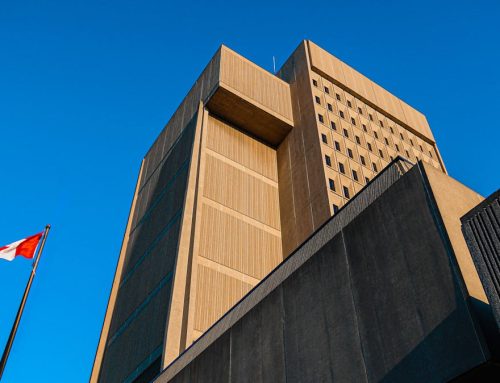The most popular rights’ issues for Canadians in 2018 included a combination of the old and the new, such as abortion, and women in combat. There are always two sides to every issue, and even when laws change we can’t always count on 100% cooperation. The good news is that social change continues to move controversial issues forward. In the meantime, it is important to know your rights.
No matter where you stand, what vote you would cast, and how you want the Canadian government to respond, becoming victimized by others is not acceptable. Social change tends to push people’s hot buttons and creates division, unfairness, and oftentimes actions rooted in prejudice.
Jaswal & Krueger discuss social change and discrimination laws. If you have been discriminated against for your opinions, you might have a legal case.
In a recent poll by Canada.isidewith.com, people were asked their opinion on today’s top issues. It is amazing how much social change (and social media) has shaped what was once considered controversial subjects that are now mainstream. In many ways, Canadians seem to take a more liberal stance on some topics considered debatable in other countries.
Make no mistake, there will always be those Canadians who have difficulty in accepting the relaxed laws that govern many of these issues which often results in unlawful treatment and discrimination that goes unreported.
If you or anyone you know has been harassed, discriminated against, or abused for any of these or other “rights” issues, you might have a legal case.
Here Are a Few of the Hottest Topics:
Abortion
(Poll results: 76% Pro-choice / 24% Pro-life) Governed by medical standards, Canada has no legal restrictions on abortion and is governed by the Canada Health Act. However, in some provinces, like Nova Scotia, access is scarce and there are long waiting times. There are still political leaders working to limit abortion access and “Pregnancy Crisis Centres” are in business to discourage women from going forward with an abortion. Some of them are even federally funded. If you have visited one of these centres and made a decision based on misleading information, you may want to consult with a legal expert.
Gay Marriage
(Poll results: 85% Yes / 15% No) Canada’s lesbian, gay, bisexual, and transgender civil rights are considered some of the most advanced in the world. In 2005, Canada became the first country outside of Europe to legalize same-sex marriage after the enactment of the Civil Marriage Act. At the time of the 2016 census, there were nearly 73,000 same-sex couples and 33.4 percent of them were married. However, negative and harmful actions toward gay couples continue to persist in many ways. If you have ever been harassed or turned down for housing, financial services, or any standard provided to heterosexual couples, you may want to consider legal action.
LGBT Adoption Rights
(Poll results: 79% Yes / 21% No) The Constitution of Canada does not need to grant or deny any right specifically to LGBT people because Section 15 of the Charter prohibits any type of discrimination, as follows:
“Every individual is equal before and under the law and has the right to the equal protection and equal benefit of the law without discrimination and, in particular, without discrimination based on race, national or ethnic origin, colour, religion, sex, age or mental or physical disability.”
Sex and physical disability are interpreted to include transsexuality. Canada has long since allowed adoption by same-sex couples although the rules vary by province. Still, there are Christian adoption agencies that refuse to place children with same-sex parents. In fact, many foster care agencies also discriminate unlawfully based on religious or prejudice perspectives. If you, family or friends have ever been subject to adoption or foster care discrimination based on sexuality, it is likely you have a legal case that could reverse the adoption possibilities or provide financial compensation.
Niqāb
(Poll results: 50% Yes / 50% No) The Quebec province continues to try to ban public workers from wearing face coverings (i.e. Niqāb, Burka or Chador) in public spaces. The ban is also intended to include citizens/. This means wearers would be “required” to remove their face coverings while on public transit or when providing or receiving public services.
While many feel it is directly targeted at Muslim women, the premier of Quebec, Philippe Couillard stated otherwise, “We are just saying that for reasons linked to communication, identification, and safety, public services should be given and received with an open face.”
In a separate interview, Canadian prime minister Trudeau had a slightly different slant:
“I don’t think it’s the government’s business to tell a woman what she should or shouldn’t be wearing.” He added, “The federal government has an obligation to accept the fact that the provinces have a right to pass their own legislation…” He was quick to include, “It’s not up to the federal government to challenge this, but we will certainly be looking at how this will unfold with full respect for the national assembly.”
If you are a female citizen who has worn facial covering in public places and received fines, you may be a candidate for a personal injury case.
When You’re a Victim of Discrimination or Personal Injury
There is no reason to remain victimized. There are legal ways to successfully rebound from discrimination and personal injury. The lawyers at Jaswal & Kreuger are experienced legal professionals that have helped hundreds of recipients of discrimination. Each case is handled with complete privacy, insights, and sensitivities. Contact us today for a consultation. We want to help rectify wrongful intolerance actions and enforce equitable practices.












